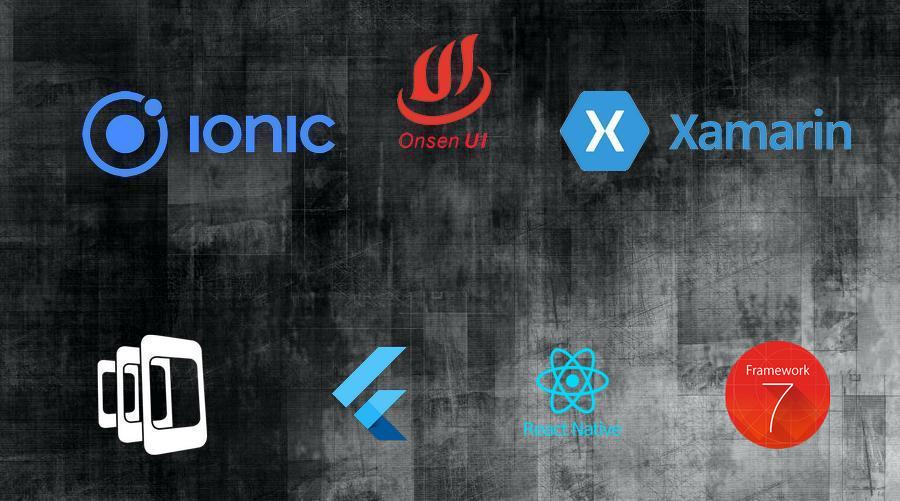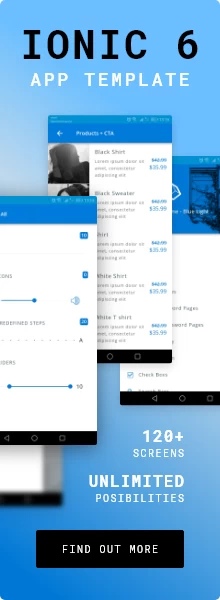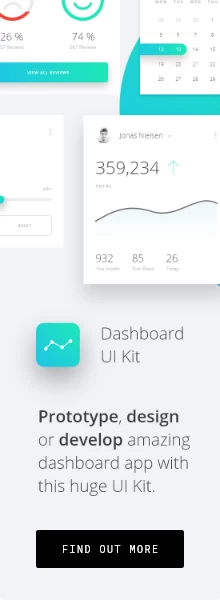Best Cross Platform Mobile Frameworks for 2019
Thu.08.11.2018 BY

Android and iOS are the main platforms for mobile app development. If you opt for a native mobile app development approach, you will need to write different code for both platforms. This is the main reason why cross-platform development gained so much popularity in the mobile industry since it saves time and effort when building an app. Hybrid app development frameworks such as Ionic, Xamarin from Microsoft and Flutter from Google have become increasingly popular and their use will be even augmented in 2019. This article provides a deeper look into the world of hybrid mobile app development frameworks. Check out the complete list and choose wisely.
Benefits of hybrid mobile app development
Hybrid mobile app development is in a position to offer a wide array of benefits for users. The first and most obvious advantage of the hybrid app development approach is cost-effectiveness. The code is written once and deployed across all mobile platforms. Other advantages include an attractive and consistent UI experience, offline support, simplified maintenance, and ease of integration. The list below includes both new and well-established hybrid app development frameworks, which will make mobile app development in 2019 easier than ever.
1. Ionic Framework
Ionic is the most popular framework on the list for hybrid app development. It uses technologies that most developers are familiar with such as HTML, CSS, and JavaScript. The Ionic framework comes with a powerful CLI which makes it possible to create, code, test and deploy Ionic app to the platform of your convenience. The overwhelming results Ionic has provided in conjunction with Angular has made it an easy pick for building hybrid mobile apps in the recent past. Its extensive list of features, predefined elements and a large community of developers are just some of the things that made Ionic so popular. Due to its ability to build native like mobile apps, Ionic is also a great choice for PWA development. Version 4 of currently in beta version, and the production version is expected soon.
2. React Native
With React Native you are building a truly native mobile app where React Native components are transpiled to native iOS and Android components while using JavaScript and the React framework. Initially, Facebook developed React Native to support only iOS, however with its recent support of the Android operating system, the library can now render mobile UIs for both platforms. Getting started with React Native is extremely easy, especially for developers that are familiar with JavaScript, which is a dynamic programming language that is mostly used for adding interactivity on websites. Tesla, Skype, Walmart and Airbnb are among the top users of React Native.
3. Flutter
Announced by Google in February 2018 at Mobile World Congress, Flutter is a modern development kit designed for building mobile apps for Android, iOS and Google Fuchsia. Flutter is an open source app development framework, based on the Dart programming language. One of the great things about Flutter is hot reload. This means developers can see all the changes they have made to the code right away in the app. This enables developers to quickly add new features, fix bugs and experiment. Flutter has a rich set of widgets and extensive capabilities for creating complex custom widgets, which is extremely relevant for app's view and interface. Since Flutter has a big name behind it, you can count on the support from the Material Design team and a community of over 1000 developers. Its cons are limited libraries, continuous integration, and limited TV support.
4. Xamarin
Owned by Microsoft, Xamarin is one of the most prominent hybrid frameworks which works on the WORA – write once, run any model. The apps built using this framework offer native experience and are aesthetically pleasing. Its ability to reuse code, tools and functions makes it a suitable tool for fast app development. Xamarin is used by over 15 thousand companies in fields like healthcare, energy and transport.
5. Framework 7
Framework 7 is a free and open source mobile HTML framework that allows developing hybrid mobile apps with native iOS and Android look & feel. This framework also helps in building quick app prototypes, which can be a life-saver when you need to show the clients a rough idea of the project. Probably the best thing about Framework 7 is that it has no external dependency on tools like React or Angular, unlike other hybrid frameworks.
6. PhoneGap
PhoneGap is one of the most frameworks which is used by many experienced developers. With the help of PhoneGap framework, it is possible to deliver feature-rich and robust apps which work efficiently across multiple platforms. With the knowledge of HTML, CSS and JavaScript you can get the ball rolling with PhoneGap app development.
7. Onsen UI
Onsen UI is a new hybrid framework which is expected to become a serious opponent to extremely popular Ionic. This open-source framework offers a plethora of ready-made components that you can use to build apps coded in HTML5 and JavaScript. Onsen UI is based on framework-independent UI components, so developers can switch from and to various frameworks such as Angular, React, Vue.js and Meteor, or use just pure JavaScript to build their hybrid apps.




